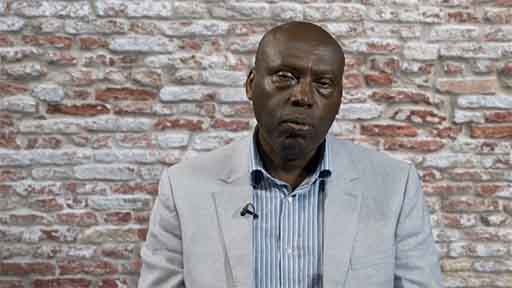1.1 The power of professionals
Influencing professionals is different from influencing elected officials, who are subject to scrutiny and regular elections to renew their mandate. In addition, elected officials can be petitioned; they often run clinics for the constituents and can be accessed in other ways, including when dropping off leaflets and flyers in neighbourhoods during electoral campaigns. Professionals involved in local bureaucracies are accountable in different ways. They occupy a vital position in local public institutions, and any work you do or are involved in addressing racial inequalities will only succeed if you have them on board. You will explore their power and put some thought into how you can influence local public services.
Activity 1 Fidèle Mutwarasibo: Leadership practices
Now watch this video with Fidèle Mutwarasibo, lecturer at the Open University Business School. As you watch, draw up a list of the leadership practices deployed in the activities discussed.

Transcript: Video 1 Fidèle Mutwarasibo – Engaging and collaborating with local public service providers
Discussion
The clip highlighted several leadership practices that made a difference in the campaigns and research practices covered. Some of these practices are shared below, but the list is not exhaustive, and there may be others you have thought of:
- Storytelling: telling authentic stories helps in getting other people on your side. Storytelling also humanises people and helps people look at human experiences rather than dwelling on the statistics that dominate discourses on equality and diversity issues.
- Teamwork: collective leadership requires working with others. Successful campaigns involve many leaders, and a successful community campaign requires many skills that are not likely to be possessed by one individual leader.
- Communication: a leader has to communicate with team members and other stakeholders. Communicating in this instance may involve intercultural communication skills; as a leader, you have to engage with leaders from other communities.
- Research: in leadership, it is essential to do homework, for example, involving evaluating alternative solutions. Research is, therefore, an essential leadership practice, and many leaders use action research practices.
- Negotiation: success implies seeking solutions that benefit most if not all stakeholders. The winner-takes-all approach is likely to fail as a negotiation strategy. An approach which focuses on benefitting all parties, on the other hand, allows all stakeholders to claim success and suggests a process of give and take.
- Networking: networking skills are vital in leadership. As articulated in the video, successful community-led campaigns require expanding your networks.
- Stakeholder engagement: leading change requires you to undertake a stakeholder analysis. Stakeholders range from those affected by the issue, those with influence over the change you are pursuing and others in between. As a leader, you must engage with stakeholders from various backgrounds.
